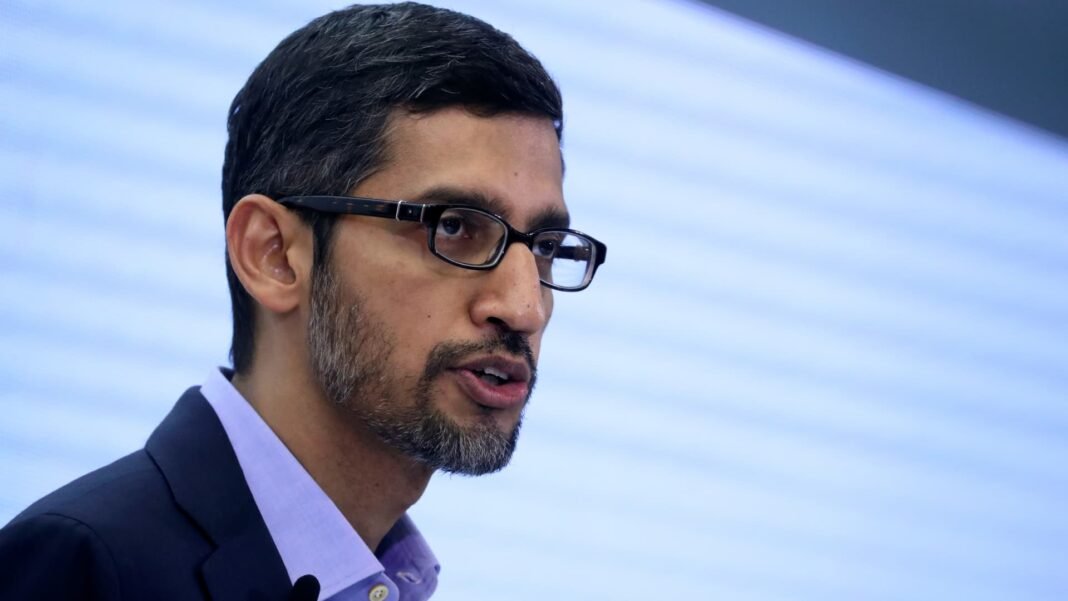Google has taken a significant stride in the healthcare industry with the launch of MedLM, a groundbreaking suite of healthcare-specific artificial intelligence (AI) models. These models are poised to revolutionize the way clinicians and researchers approach their work, promising to simplify complex studies, enhance doctor-patient interactions, and more. In this article, we delve deeper into Google’s latest foray into healthcare AI and how it could reshape the industry.

The Competitive Landscape Competition in the healthcare AI sector has been heating up, with tech giants like Amazon and Microsoft vying for market dominance. Google’s introduction of MedLM is a strategic move aimed at securing its foothold in this fiercely competitive environment. CNBC recently interviewed companies that have been testing Google’s AI technology, such as HCA Healthcare, and experts have highlighted the genuine potential of these innovations. However, it is crucial to approach implementation with care due to the sensitive nature of healthcare.
The MedLM Suite The MedLM suite comprises two primary AI models—a large and a medium-sized model—both built on Med-PaLM 2, a robust language model initially announced by Google in March. As of Wednesday, eligible Google Cloud customers in the United States can access this suite. Google has adopted a flexible pricing structure, with the medium-sized model being a more cost-effective option. Furthermore, Google has plans to integrate healthcare-specific versions of Gemini, its latest and most advanced AI model, into the MedLM suite in the near future.
Aashima Gupta, Google Cloud’s Global Director of Healthcare Strategy and Solutions, explained that different AI models excel at specific tasks. This insight prompted Google to offer a suite of models rather than attempting a “one-size-fits-all” approach. For instance, the larger MedLM model is better suited for intricate tasks that demand in-depth knowledge and substantial computing power, such as conducting studies using data from an entire patient population. On the other hand, the medium-sized model is more agile and can be optimized for specific or real-time functions, such as summarizing interactions between doctors and patients.
Evolution of Use Cases Since the initial announcement of Med-PaLM 2 in March, Google has adapted its technology in response to customer feedback and practical experience. Greg Corrado, Head of Google’s Health AI, noted that clinicians typically do not require assistance with basic disease-related queries. Instead, healthcare organizations seek AI solutions to address back-office and logistical challenges, like managing paperwork and improving workflow efficiency.
HCA Healthcare, one of the largest health systems in the U.S., has been actively testing Google’s AI technology since the spring. In August, the company formalized its collaboration with Google Cloud, with the goal of using generative AI to enhance workflow efficiency. Dr. Michael Schlosser, Senior Vice President of Care Transformation and Innovation at HCA, shared an example of how they have been leveraging MedLM. The technology aids emergency medicine physicians in automatically documenting patient interactions. Augmedix, a company specializing in ambient speech documentation systems, transcribes doctor-patient meetings. Google’s MedLM suite then processes these transcripts and extracts essential information for emergency room provider notes.
HCA’s Future Plans HCA Healthcare has implemented MedLM within the emergency rooms of four hospitals and intends to expand its usage in the coming year. Dr. Schlosser expects that by January, Google’s technology will be proficient enough to generate over half of a physician’s note without manual input. Given that doctors often spend up to four hours a day on administrative tasks, this breakthrough promises to significantly reduce their workload and allow them to focus more on patient care.
In Conclusion Google’s introduction of the MedLM suite represents a substantial step forward in the integration of AI into healthcare. These healthcare-specific AI models offer the potential to streamline processes, enhance efficiency, and ultimately improve patient care. As Google continues to refine and expand its healthcare AI offerings, the industry can expect to see even more transformative applications in the near future.
Meta Description: Google’s latest AI models for healthcare, MedLM, promise to revolutionize the industry. Learn how these models are reshaping clinical practices and streamlining healthcare processes.




